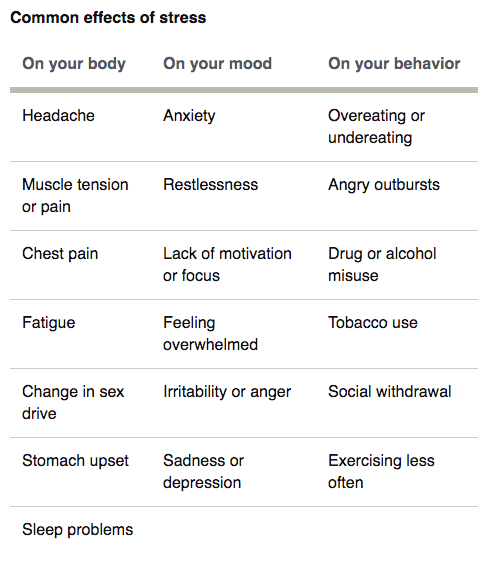Recent data reveals that more people in the U.S. are reporting significant and sustained increases in symptoms of depression and anxiety due to the impacts of the COVID-19 pandemic. While we continue to adjust to our “new normal” and try our best to stay healthy physically, it is equally important to remember to take care of your mental health, as it is closely tied to your body’s overall wellness.
In fact, the World Health Organization defines health as “a state of complete physical, mental and social wellbeing” as one affects the other. Everyone reacts differently to stressful situations, but the way you cope with these situations is important in ensuring a healthy body and mind.
Our mental health can impact our physical health and vice versa. This is why it’s vital to prioritize taking care of both your mind and body.
Mental Health and Chronic Illness
Did you know that poor mental health is a risk factor for certain chronic physical conditions? It is reported that the rate of poor mental health in patients with a chronic disease is almost three times higher than average. Your mind and body are both affected by changes to physiological and emotional processes. For example, it is estimated that 15% of people with heart disease also develop major depression. Developing co-existing conditions are quite common as mental and physical health are strongly linked.
Chronic medical conditions that are associated with mental health conditions include:
- – Alzheimer’s disease
- – Cancer
- – Coronary heart disease
- – Diabetes
- – Epilepsy
- – HIV/AIDS
- – Multiple sclerosis
- – Parkinson’s disease
- – Rheumatoid arthritis
- – Stroke
In other words, the way you feel mentally can have a dramatic effect on your quality of life. The reasons for mental health affecting physical health are still being studied. However, people dealing with depression, anxiety or stress may have a harder time eating well, exercising or seeking medical treatment, which may contribute to their overall health and wellbeing.
How Stress Can Impact Your Health
Everyone experiences stress from time to time and some types of stress are normal and healthy. However, chronic stress or emotional pressure felt over a prolonged period of time can result in negative impacts on your overall health.
When you feel stressed, hormones from the pituitary tells the adrenal gland to release adrenaline and cortisol (the “stress hormones”). In turn, adrenaline and cortisol send blood to your muscles, heart and other organs. This is why you may feel a sudden rush, fast heartbeat and/or tense muscles when you’re stressed. Chronic stress can increase your likelihood of developing or exacerbating many serious health issues, such as high blood pressure, heart disease, obesity and diabetes.

Source: The Mayo Clinic
Many situations can cause stress in the body. Fortunately, being able to recognize these symptoms can help you learn how to cope and manage stress.
How Mental Health Affects Your Immune System
It’s important to know that your immune system is also interconnected to your mental health. Your immune system is responsible for protecting your body against infectious viruses and bacteria. Feeling stress, anxiety or depression has the ability to suppress your immune system and decrease its response against harmful microbes.
The reason for this connection is still being studied, but adrenaline and cortisol appear to have a direct impact on the brain, which in turn affects the nervous system and immune system. While the short-term effects of adrenaline and cortisol are essential for our survival, as they put us in the “fight or flight” mode, feeling the long term effects of stress hormones can weaken the immune system. In addition, stress hormones can also over-activate the immune system, causing an increased risk for autoimmune diseases, such as arthritis, asthma and multiple sclerosis.
Things You Can Do to Relieve Stress and Improve Mental Health
The good news is that there are positive lifestyle changes you can make to improve your overall mental and physical health.
- Sleep: Getting enough sleep is essential for a healthy body and mind. Unfortunately, many of us do not get enough sleep. The Mayo Clinic states that in general, adults need between seven and nine hours of good sleep each night.
- Exercise: Physical activity can benefit many facets of your life and can even decrease your chances of developing many chronic diseases, such as heart disease, diabetes and certain cancers. It is recommended to get at least 150 minutes of moderate aerobic activity or 75 minutes of vigorous aerobic activity each week.
- Eat a Balanced Diet: Eating nutrient-rich foods is obviously important for your physical health, but it did you know that food can play a role in your overall mood? Recent research into the mental health and nutrition connection reveals that eating foods rich in zinc, magnesium, omega 3 and vitamins B and D3 can help improve your mood, reduce anxiety and even depression.
Through the COVID-19 pandemic and beyond, it’s important to take care of yourself by getting sufficient sleep, eating healthy and staying physically active. Listen to your body. Mental health has a direct impact on your physical health. Understanding the connection between mind and body is the first step in ensuring a healthier you and developing strategies for improving your wellbeing.
If you have concerns about anxiety, stress, or changes in mood, let your doctor know. Your healthcare provider can monitor your symptoms and suggest lifestyle changes, therapy or treatment that will work for you. For questions or support on your journey to improved health, search PACT’s list of Connecticut based, board-certified family medicine and internal medicine specialists here to find a provider for you and/or your family.
Looking For a Primary Care Doctor in Connecticut?
PACT Primary Care is Accepting New Patients!
Locations throughout Connecticut in Guilford, Hamden, Madison, Milford, New Haven, Orange, West Haven and Wallingford.
To schedule an appointment, request an appointment online here or call a local center near you.









